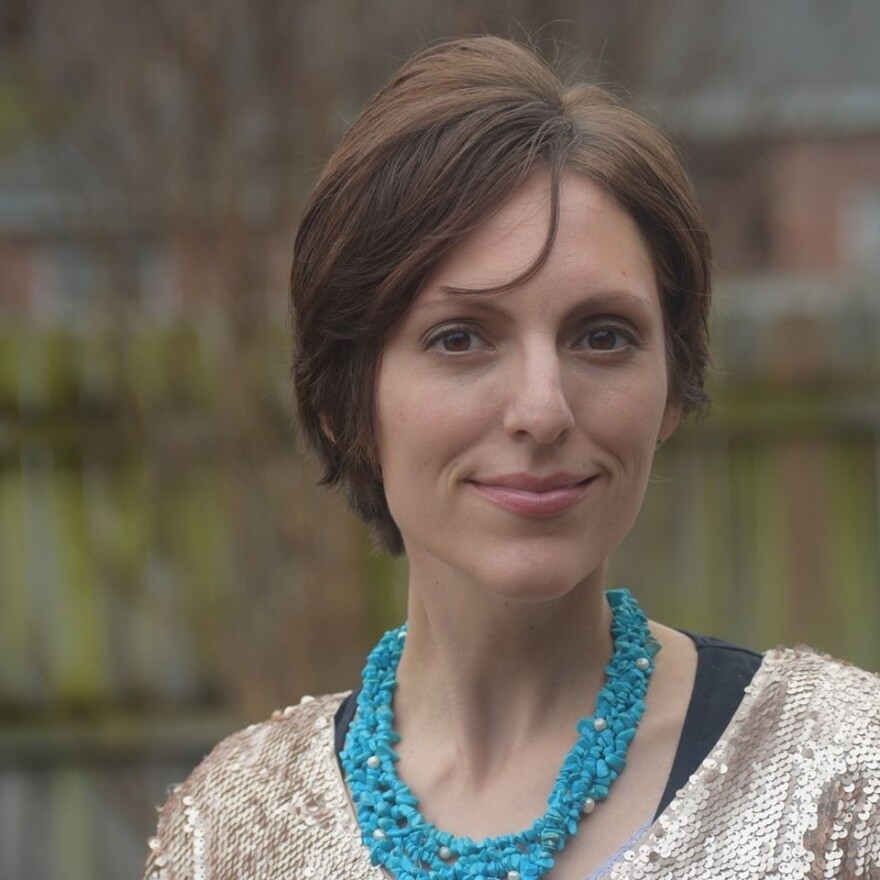The Navajo Nation is one of the hardest hit areas in the country by COVID-19. The reasons for that are complicated and bound up in years of history. One person trying to make sense of it is Farina King, a citizen of the Navajo Nation and a professor at Northeastern State University in Oklahoma. King has compiled what she calls the “Diné Doctor History Syllabus,” an open access syllabus with writings and resources to help people understand the history of the Diné people and how it has compounded the effects of the pandemic.
KUER’s Caroline Ballard spoke with King about the project, and she said it ties together the history of a people and family history. She told the story of her father, a doctor.
This interview has been edited for length and clarity.

Farina King: He worked for Indian Health Services for decades. He retired from IHS and then he went right back to work going to the Monument Valley, Utah Navajo Health System. He feels needed and he will go where he is needed.
I know he was inspired by his ancestors, by his own father, who was hataałii, a healer, and did that same thing.
Why the infections are so intense and rampant has a lot to do with underlying sickness and everyday violence that are being perpetuated from horrible cycles of colonialism.
My ancestors living in the Navajo homelands had a way of living, had their own health practices, and when you have this introduction of a different people coming in who are claiming that land for themselves and coming into a position of control and dominance in a very outrightly violent way, there was this formation of dependence on the United States.
My ancestors had to go get rations and are introduced to fry bread, which they didn't eat before, {made with} lard and flour. That becomes not only a survival food, but it becomes a staple. Within generations you have development and introduction of health issues like diabetes. There are extensive studies of this, of how cancer is introduced to our people.
That's the tip of the iceberg, because you also have issues with infrastructure. Up to 40% of Navajos do not have access to basic human privileges of water and electricity.
So if you're already asked to wash your hands and that's the number one way to protect your people, that is a huge sacrifice and even an impossible task for some Navajos. Because if there's some who live where your water is to drink so you can survive, and if you have to use that to wash your hands, you're put at a lose-lose situation there.
I know within my own family, I've lost relatives already to diabetes and cancer, and I've lost my aunt to COVID-19, and she was diabetic.
I am very emotional because I'm inspired by my cousins and my aunts and uncles and the life of my aunt.
We are still here and we have been survivors through generations. Through our teachings, we were taught “wake up to greet that sunrise, run towards it and that will strengthen you.” Or “pray and know your creator. Be there for your family.”
So it is really a difficult time because we couldn’t grieve in the ways we expected we would for my aunt. But it's been beautiful how the distance doesn't matter, that we're still able to support and connect with each other.
I want to have this syllabus to just start to have these conversations. Then we can grow from each other because it's not just a Navajo issue. It's recognizing our interconnectedness all in society and that mutual human respect.
Caroline Ballard hosts All Things Considered at KUER. Follow her on Twitter @cballardnews


